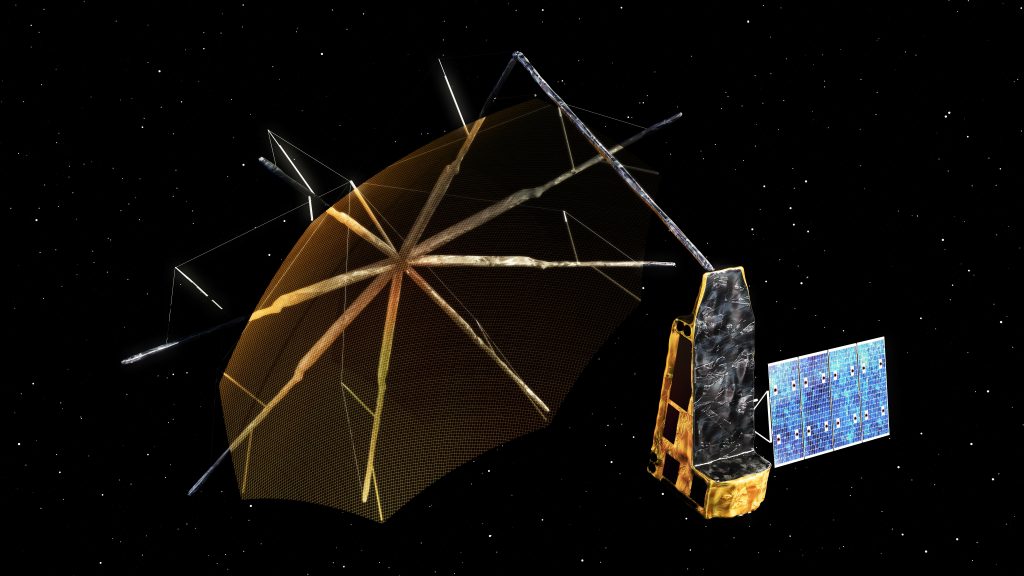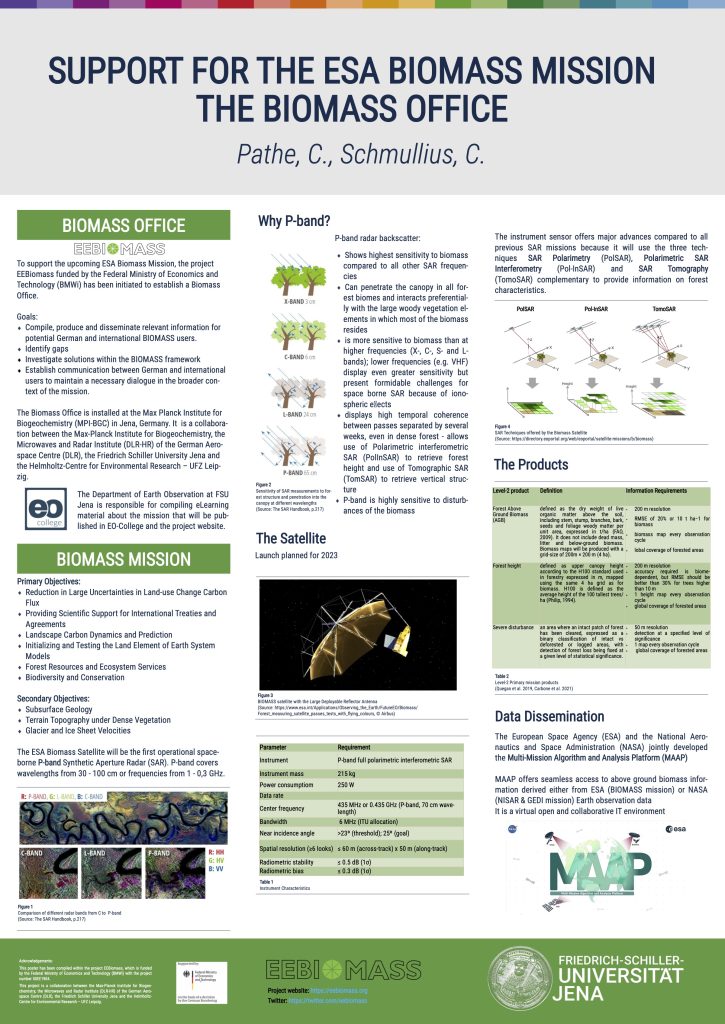
In the advent of ESA’s BIOMASS mission it is relevant to synthesize and bring forth the current understanding of challenges and opportunities in monitoring biomass in terrestrial ecosystems to further develop our knowledge of the Earth system. Within ESA’s Earth Explorers, the primary objective of BIOMASS is to improve our understanding on the role of the land biosphere on the global carbon cycle, with clear implications in a context of climate change. The information content in characterizing the spatial and temporal variability in P-band biomass is unprecedented and unique for terrestrial ecosystem studies, especially with what relates to land use change and disturbance dynamics fluxes, ultimately improving the ability to model the global carbon. The mission necessarily embeds challenges across the board, from instrument design, definition of retrieval algorithms and calibration-validation strategies, to downstream data concepts and deployment for a wide diversity of applications.

The project office BIOMASS is a collaboration between the Max-Planck Institute for Biogeochemistry, the Microwaves and Radar Institute (DLR-HR) of the the German Aerospace Center (DLR), the Friedrich Schiller University and the Helmholtz-Centre for Environmental Research – UFZ.
- We synthesize, produce and disseminate relevant information within the German BIOMASS community in our interactive workshops and webinars.
- We identify gaps and investigate solutions within the context of the BIOMASS mission based on the needs of its community.
- With our Summer School in 2022 we trained young researchers on the unique characteristics of P-Band and maintained the necessary dialogue within the broader context of the BIOMASS mission.

Our project partners Carten Pathe and Christiane Schmullius (FSU) created this visual overview on the Project Office and the BIOMASS mission, which you can download here.
Indicator: 50EE1904

